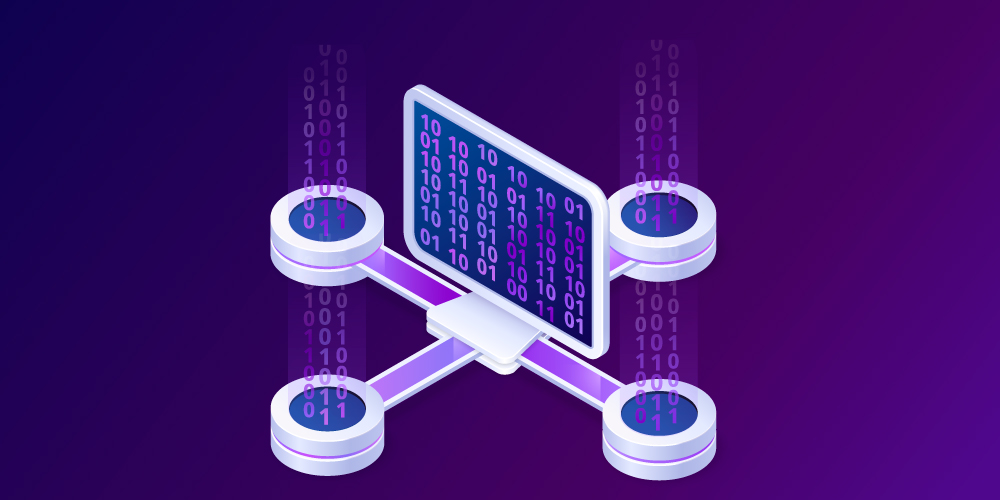Blockchain technology is driving change across a range of industry verticals, and the real estate sector seems ripe for change. How will blockchain make real estate transactions more efficient?
Mediations
Real estate transactions are burdensome, opaque, and expensive due to the requirements of intermediaries such as brokers, government property databases, private companies: insurance and property databases, escrow companies, inspectors, appraisers, and notaries.
These intermediaries exist because they store information that may be difficult to access, or they have the skills / licenses necessary to work in the existing real estate ecosystem.
A public blockchain is a distributed database where anyone can record information without censorship and without permission. Similarly, anyone can access this information.
Consider the titles of ownership. Registration offices and insurance companies maintain databases of property records. This information includes the address, previous and current owners, and various encumbrances such as mortgages. Before the Internet, these public and private companies were required to verify and register property data. How can blockchain replace these intermediaries?
Jason ray, Executive Vice President and CTO of the Urban Land Institute, says that blockchain technology will soon allow each property to have a corresponding digital address that will contain information about employment, finances, legal characteristics, building characteristics, physical data, and records of all historical transactions. “The data will be immediately available online and comparable across all sites,” he says. “The transaction speed will be reduced from days / weeks / months to minutes or seconds.”
Currently, the ownership of real estate is registered on paper. To transfer property, you fill out the forms in the deed, sign it with a pen, go to the notary who approves it, and then this document must be delivered to the County Registrar’s office for posting in their database. Not an efficient digital process.
Using
the blockchain to record ownership, we can create a digital name. This is a
cryptographically secure record that can be transmitted or verified as quickly
and cheaply as an email. Before sending email, you needed envelopes, stamps,
trucks, sorting machines, and postal workers to organize and distribute mail.
Once people can easily check property records and transfer ownership digitally,
brokers, insurance companies, registrars and notaries will be in the same group
as the post office.
By removing these intermediaries, you can reduce the associated costs. Using
blockchain and smart contracts to automate these processes will save you time
and money. The result will be an improved and effective experience for both
buyers and sellers.
Fraud prevention
Real estate fraud is rampant. At the lower level, this is done by petty thieves of the order of $ 500, and at the upper level, the world’s largest banks and mortgage lenders create chaos by misleading even ordinary rentals.
How
can blockchain prevent real estate fraud? Offering an immutable database
updated by an unlimited number of participants, which does not rely on the
trust of any one party, does not have a single point of failure at which the
sender and recipient of funds are registered and where digital certificates of
ownership of real estate are stored. Blockchain can leave behind fake ownership
documents and fake lists.
Sweden was one of the first countries to consider options for using blockchain
technology in real estate. The UK government has announced a plan to switch to
a blockchain-based land registry by 2022.
Smart contracts

The goal of a smart contract is to reduce the need for people to process, trust, and verify an agreement. Smart contracts are automated and perform an action when certain conditions are met. Blockchain platforms, such as Ethereum, can execute “smart contracts” – a term first popularized by digital money pioneer Nick Szabo. He gave an example of a vending machine that releases a product after a selection is made and the correct value is entered. So how can you use a smart contract in the transaction of ownership of the blockchain?
Andrew Hinks, partner at the dispute resolution group Berger Singerman LLP, explains how smart contracts can radically change the way simple real estate transactions are conducted. “Party A and Party B will enter into a contract under which Party A must pay us $ 200,000 to Party B in exchange for Party B agreeing to transfer ownership of the property of Party B to Party A after receiving payment,” explains Hinckes. “At present, if Party A pays money but Party B later refuses to transfer ownership, Party A must hire an attorney to secure specific performance of this contract or to obtain damages. The result will be determined by a third party: a judge, jury, or arbitrator.”
However, Hinkes says that using a smart contract can avoid the potential for one party to perform while the other refuses or fails to perform its functions. “Using a smart contract, Party A and Party B can agree to the same transaction, but structure it differently,” he explains. “In this scenario, Party A agrees to pay Party B a virtual currency in the amount of us $ 200,000. 00, and Party B agrees to transfer ownership in a special form of coin on the blockchain. When Party A transfers a virtual currency to Party B, this action serves as a triggering event for Party B, which then automatically sends a specialized coin that denotes ownership to Party A. After that, the transfer is completed, and the ownership of Party A can be verified using a public record in the blockchain”.
Structuring this transaction as a smart contract ensures that the transfer occurs immediately after funds are received, and results in a publicly verifiable record of the transfer. Since the contract is executed automatically based on pre-defined rules agreed upon by the parties to the contract, the risk of fraud is low and there is little need for external measures to enforce the agreement.
Programmable money

While cryptocurrency in real estate has proven to be too volatile in price to be effective as a payment currency, the real strength of digital currency in real estate is that it is a programmable digital code. With Fiat money, you need people and banks, but digital money can be programmed to deposit and distribute.
When someone rents an apartment the landlord takes a security deposit in case the tenant will cause substantial damage to property. By law, they must keep funds in a separate escrow account and not spend them. At the end of the lease term, the tenant must rely on the good faith of the landlord to return the deposit. But if you’ve ever visited a small claims court, you know how often this human trust system fails.
Bitcoin has a feature called multi-signature. When sending bitcoins, you use your private key to confirm sending the digital currency to another person. Using multi-signature, you can create a transaction with three private keys, of which at least two are required for sending currency.
Using this function, you can create a programmable deposit. Instead of sending dollars to the homeowner’s Bank account, the tenant and homeowner create a multi-signature transaction. The tenant and landlord each have one private key, and the third is passed to a neutral third party who can act as an arbitrator. In order for the deposit to be spent, two out of three people will need to use their private key. Funds are locked in a crypto escrow for the duration of the lease.
The tenant almost always wants their deposit back, so they approve the transaction with their private key. At the end of the lease period, if the tenant has not harmed the property, the landlord uses his private key to release the bitcoin account.
If the tenant has damaged the property, the landlord will send the evidence to the arbitrator. The tenant can respond. After the arbitrator hears from both parties, they will use their private key to send the pledge to the winning party. Bitcoin can be sent instantly, 24 hours a day, 7 days a week. No need to wait for a paper check sent by mail, or deal with account numbers and Bank opening hours for a Bank transfer. Using blockchain, real estate depositing can be performed safely, quickly and cheaply.
Tokenization

Digital securities or security tokens are traditional securities supported by blockchain technology. Digital securities can represent the holder’s ownership interest in tangible assets, such as real estate. Digital securities allow investors to see the ownership structure of a verifiable blockchain network and are designed to provide increased transparency.
The ability to purchase a digital token that represents a share of a property reduces barriers to investing in real estate. As a rule, the purchase of real estate requires significant amounts of upfront capital. Alternatively, investors can pool their money to purchase larger properties. Through the blockchain, investors will simply need to access the trading app to buy and sell token shares as they see fit. In addition, shared ownership offers the benefits of investing in real estate without the administrative tasks of having to manage the property. At scale, tokenized real estate will dramatically expand the potential pool of investors and increase the flow of real estate liquidity around the world.
tZERO is a technology firm that creates and commercializes blockchain-based platforms that offer solutions for trading digital securities and digital assets. In July, the group announced that it had entered into a partnership with Aspen Digital Inc. so that its digital security, ASPEN, could trade on tZERO ATS.
ASPEN shares will represent $ 18 million of indirect ownership in St. Regis Aspen Resort, a five-star 179-room luxury hotel located in aspen, Colorado. This is just one example of a real estate blockchain that allows tokenization of large-scale real estate projects.
Conclusion
Worldwide, the COVID-19 pandemic has had a devastating impact on the real estate industry. Since many in the industry are in survival mode, it will take time for industry representatives to move on to new solutions.
However, blockchain is rapidly becoming the best solution for new technologies for real estate platform services, real estate management and operations, leasing and brokerage functions, research and evaluation services, planning and construction, and Smart City solutions. The result of the joint integration of blockchain in real estate will be an improved and efficient experience for both buyers and sellers, providing cost savings, efficiency, reduced fraud, and convenience.


